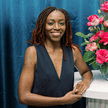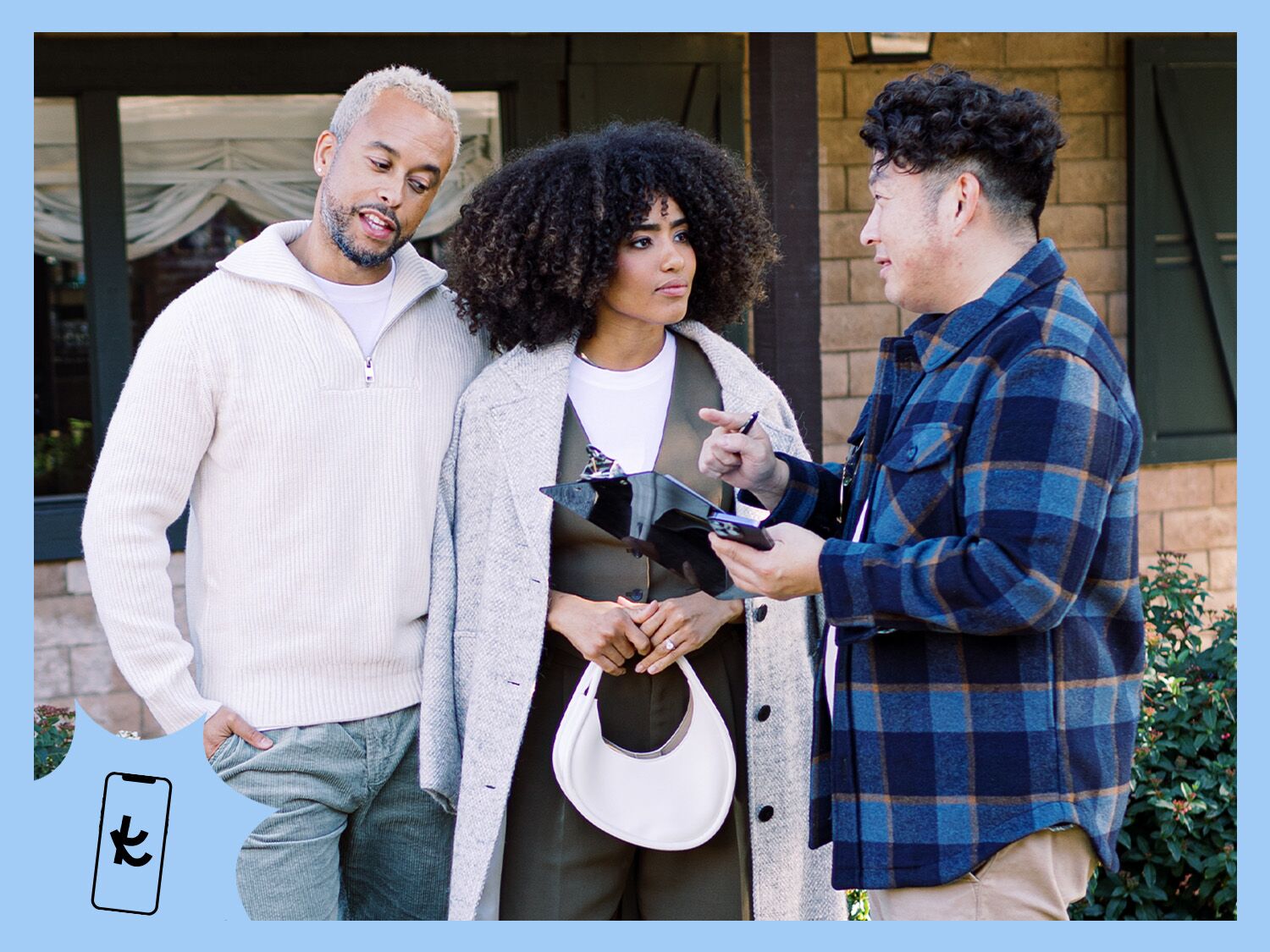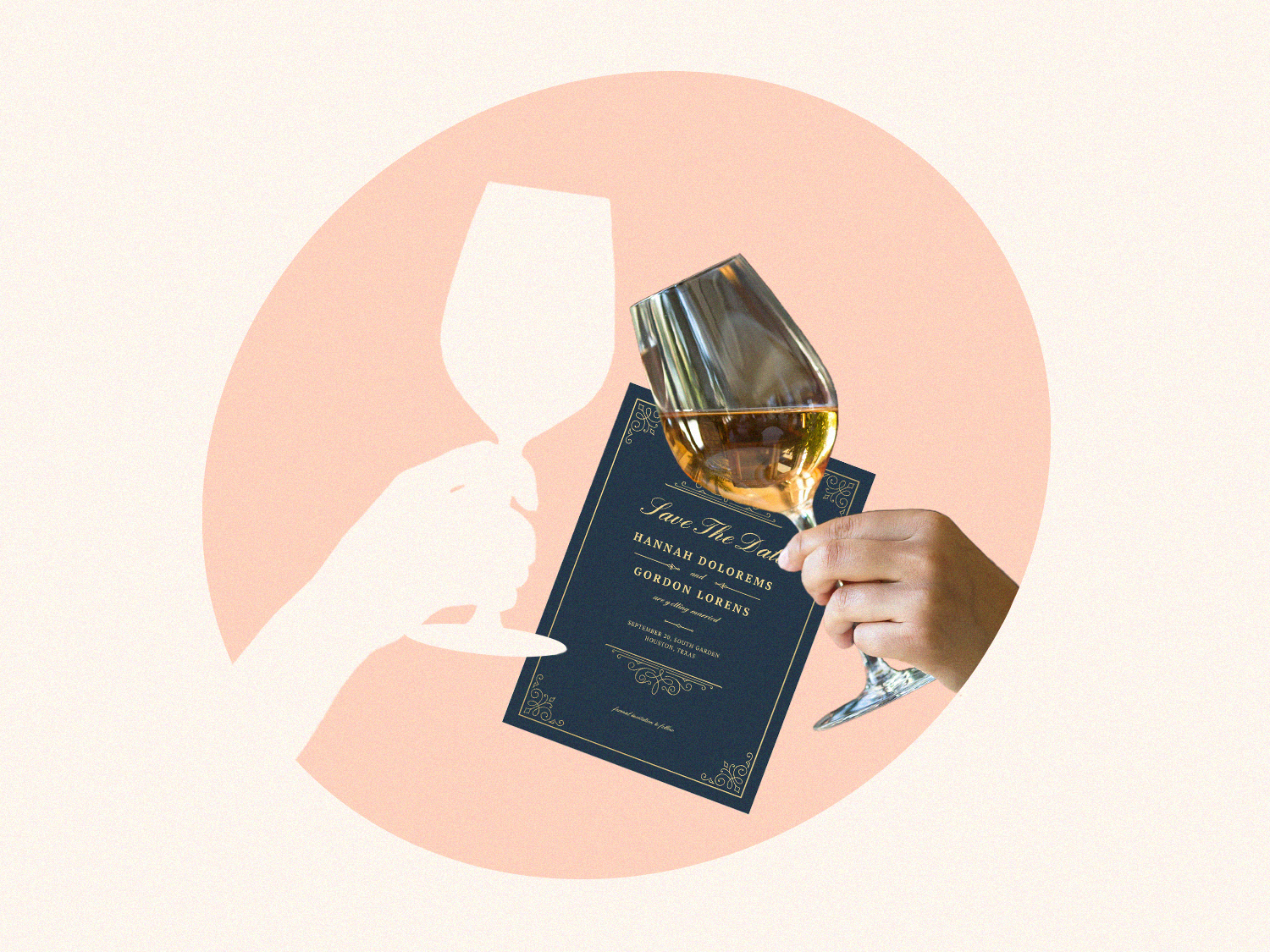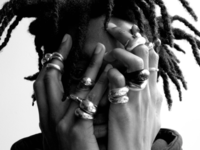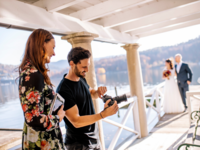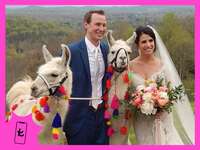10 Black Wedding Photographers You Need to Book ASAP
There are various pain points attached to wedding planning, like guests not responding to RSVPs, but finding a vendor you identify with shouldn't be one of them. That's why I interviewed 10 Black wedding photographers you need to know about right now. Because it's crucial that vendors of different races, religions and cultures are highlighted since many to-be-weds want to book someone who understands their backgrounds.
Whether you're looking for a pro who gets you or want a diverse lineup for your big day, consider one of these photographers. Not only are they changing how we remember and capture weddings, but they're also evolving how these precious events are encapsulated for generations to come.
PS: If you've been searching "Black photographers near me" and not getting the results you want, head over to The Knot Vendor Marketplace. After you've entered your wedding location, you'll find a "Support Diversity" and "Black-owned Business" filter, which allows you to refine your vision and source Black wedding dress designers, florists, bakers and a host of other Black wedding vendors.
Amira Maxwell Photography: Amira Maxwell

On her website, Amira Maxwell describes herself as a "queer, black, couples and wedding photographer," but there's so much more to know about this San Francisco Bay Area-based visual artist. Maxwell got her start during her freshman year of college after being inspired by a panelist at her school's homecoming event. "I looked at the photographer's work and decided photography was a big part of what I wanted to do with my life. Human expression along with the colors and the beauty of life are things I wanted to work with and take photos of. Almost a year after that, my dad purchased me my first crop sensor DSLR camera. After many cameras, years and highs and lows, I'm still doing it," says Maxwell, who has 13 years of experience.
With a photography style Maxwell labels as "intimate, thoughtful and observant," Maxwell says she knows exactly what makes her different from other wedding photographers. "I try to understand my clients needs before I attend their weddings. I ensure their wedding photos reflect them, their taste and the community that surrounds them. It's not solely my preferences and my approach. My clients work with me collaboratively in a way that makes photography feel less intimidating to them," she says. And when asked what message she wants to share with the next generation of Black wedding photographers, Maxwell shared, "Get to know yourself honestly, and learn to not shy from the rawness and realness of the people in front of your camera."
Dgass Photography: David Gass
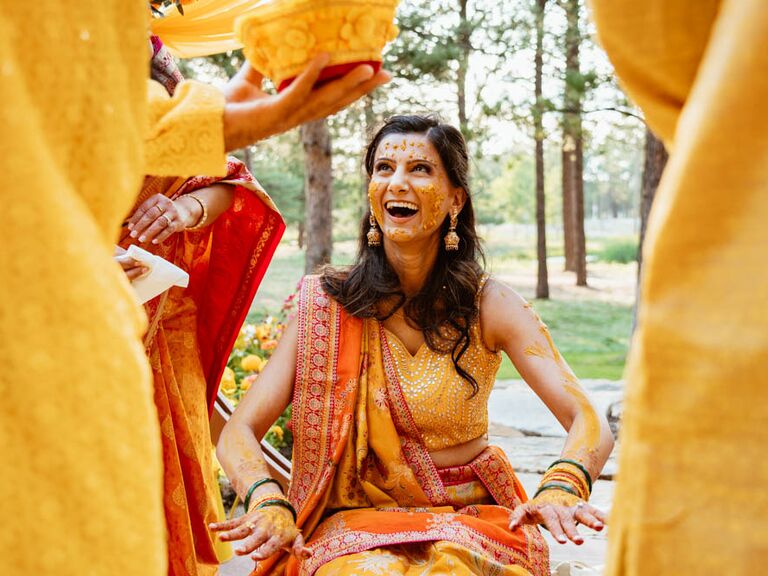
David Gass, a Black wedding photographer with about 11 years of photography expertise, admittedly grew up without many hobbies, but that all changed one day in college. "I wanted to dedicate myself to finding a hobby. So with that in mind, I pitched an internship to a local music venue where I started to do concert photography and videography. Slowly, I built a small following online, and from there, started to get inquiries about other photography opportunities," says Gass. But how did Gass gain interest in wedding photography? (Which is one of the questions to ask potential wedding photographers.) The Denver, Colorado, and Omaha, Nebraska-based pro says after capturing everything from family portraits to products for Amazon listings, he landed on weddings. "I enjoyed them so much, and I got to the point where I was forgetting that I was getting compensated for these events. Not a lot of people are able to find that connection that easily," he says.
Gass likes to take a candid and documentary approach and tells his clients that he's going to document the moments you didn't know happened (it is a hectic day after all). "One of the biggest compliments we get from our couples is being able to look back on their galleries and discover the unseen moments, like a family member and a friend meeting for the first time at cocktail hour," says Gass. Fun fact: David Gass and his photography and videography team primarily shoot South Asian weddings. "Couples rely on us to have the proper understanding of their celebrations and traditions. This makes us stand out compared to other photographers in the industry because couples know they don't have to educate us about what's happening during the wedding weekend," he explains.
Gass' parting words for African American wedding photographers is: "This industry doesn't look or feel very diverse, but there's so much space for you here. You don't need a massive budget or super expensive gear to start up. There's endless resources online, whether they're paid or free. That's how I got my start."
Learn more: Instagram, Website, The Knot Vendor Marketplace
Graceephoto: Grace Hahn
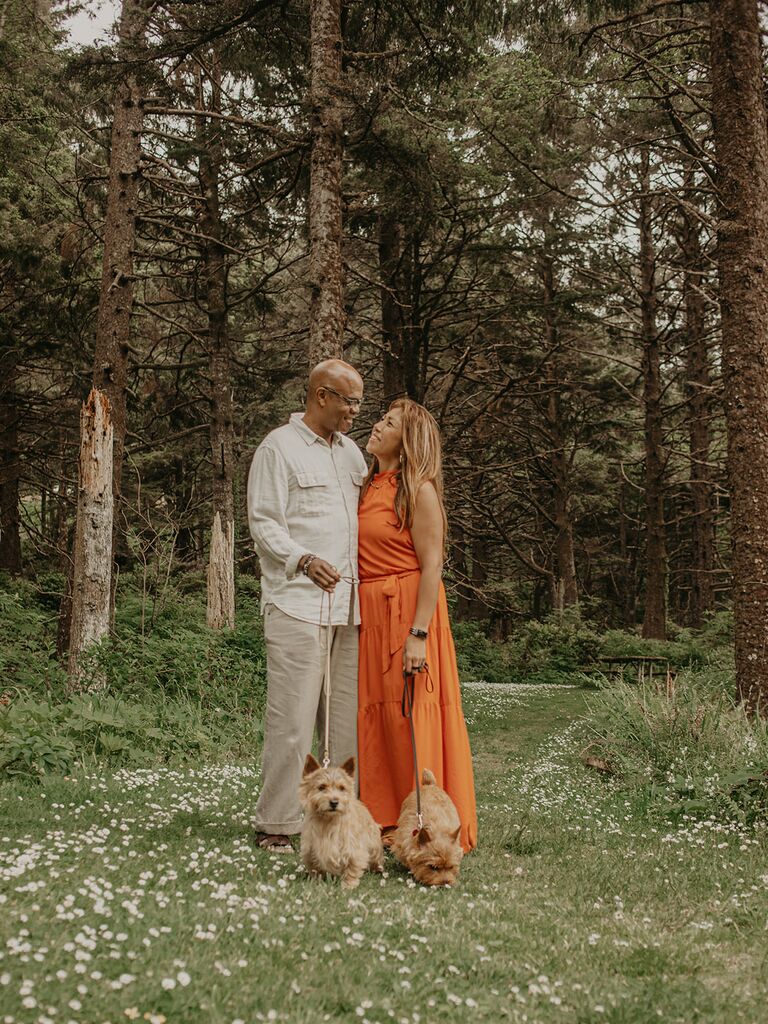
Searching for "Black wedding photographers near me?" Then look no further than Grace Hahn. The Oregon elopement and couples photographer found her love for photography in 2020 during a time of uncertainty. "I started my photography journey at the beginning of COVID-19. As a healthcare worker with the chance of losing my job, I knew a major change was necessary. It felt like the perfect time to pursue something new," says Hahn. She says her attention to detail is unmatched and that her photography style is "warm and earthy, with a touch of moodiness––it's always adaptable, shifting to complement the environment and the unique style of each couple," she explains.
But what does Hahn want upcoming Black wedding photographers to know for their journey? "Embrace the power of storytelling. Your unique perspective and cultural experiences are invaluable assets in capturing moments that go beyond just the ceremony. Your lens can showcase love in its most authentic and diverse forms." Hahn continues, touching on why taking pictures of Black wedding traditions and customs is important. "As a Black wedding photographer, I feel a deep sense of responsibility to capture not just beautiful moments, but also to honor the richness of the culture, history and love within the Black community. Being able to document these stories is not just a career for me—it's a way to preserve and celebrate our legacies for generations to come."
Learn more: Instagram
Imani Ndungu Photography: Imani Ndungu
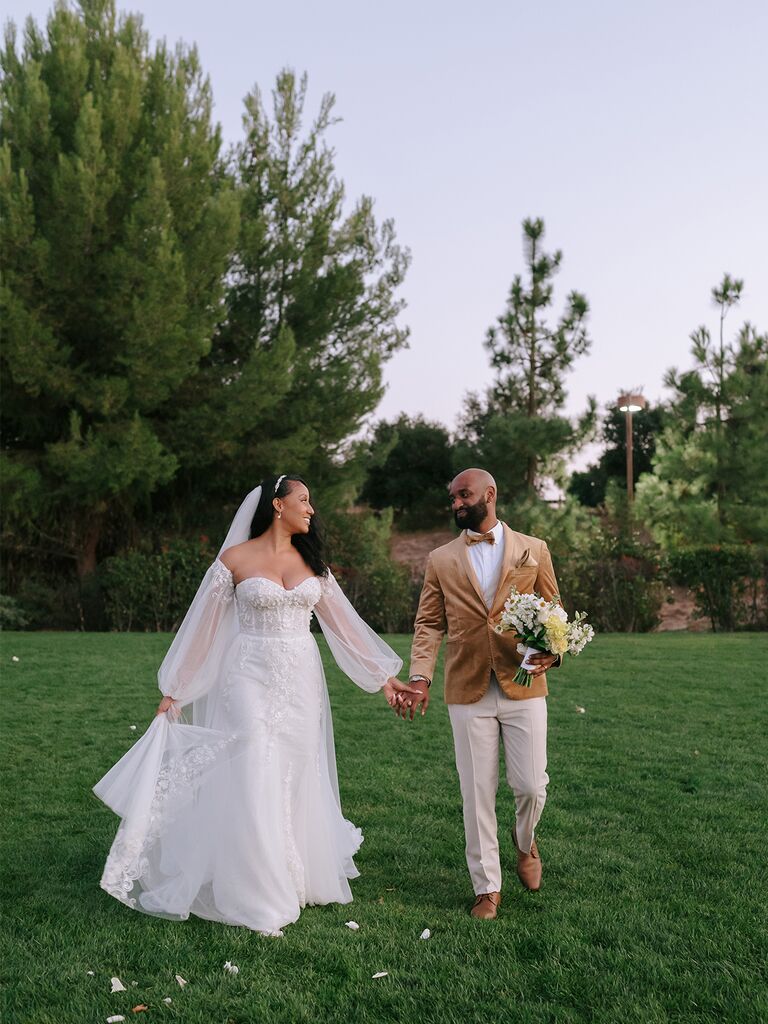
There are a lot of vendor options out there, which can make choosing a wedding photographer seem difficult. Avoid the search fatigue and check out Imani Ndungu, a Black wedding photographer based in San Diego, California. "About seven years ago, I was given a camera, which sparked my love for photography. I initially started by creating brand content as an influencer, but I quickly became fascinated with photographing people," says Ndungu. After spending almost two years doing couple sessions and engagement photoshoots, one of Ndungu's couples asked her to photograph their wedding. That's what started it all. "What excites me the most about weddings is the opportunity to capture such a dynamic and meaningful day for my couples. Weddings combine several aspects of photography I love—documentary-style images as the day unfolds, posing and directing to create editorial shots and capturing timeless family portraits," she says.
When I asked her what sets her apart from other wedding photographers, she said it was her heritage and personal taste. "Growing up in Kenya has shaped my creative influences and approach to photography, giving me a unique perspective on how I capture a wedding," Ndungu explains. This distinctive outlook is something she wants other Black wedding photographers to take advantage of. "I'd love to see this industry become more inclusive, with a wider range of cultural perspectives reflected. Not only would that create a richer, more dynamic space for photographers, but it would also allow clients to see themselves fully represented—because everyone deserves to have their love stories documented by someone who truly understands and honors their experience," she says.
Learn more: Instagram, Website
Kendra Lynece Photography: Kendra Lynece

Take a break from researching wedding photographer costs, and instead learn about a talented Black wedding photographer based in Grand Rapids, Michigan, and Chicago, Illinois. Kendra Lynece, who's been a professional photographer for about 17 years, takes Black couple wedding pics, but specializes in LGBTQIA+ and BIPOC wedding photography as well. Being a photographer has been a lifelong passion of hers and began when she was eight years old. "My grandfather was a photographer, and I was fascinated watching him work. When he passed, I inherited all his equipment, and as a tribute to him, I used his gear to take my senior photos," says Lynece. Soon after her substitute art teacher's friend inquired about an assistant photographer, Lynece was hired for a few weddings. "From the very first wedding, I was hooked. There's something about capturing real love stories, the emotions and the once in a lifetime moments that felt so natural to me," she adds.
With a blend of elegant, authentic and joyful storytelling, Lynece says she focuses on capturing real moments "whether it's laughter, happy tears or the little in between glances that tell a love story in a way that feels true to my couples. My work is diverse and intentional, ensuring that every skin tone is beautifully represented." Lynece feels standing out amongst other wedding photographers isn't hard since working with her guarantees beautiful photos and a fun experience throughout. But beyond that, Lynece wants the next group of Black wedding photographers to be themselves despite what others say. "People will tell you what is and isn't 'appropriate' to showcase as a photographer, but the more I leaned into who I truly am, the more people felt connected to me as both an artist and a person."
Learn more: Instagram, Website
Mo Davis Photography: Moesia Davis
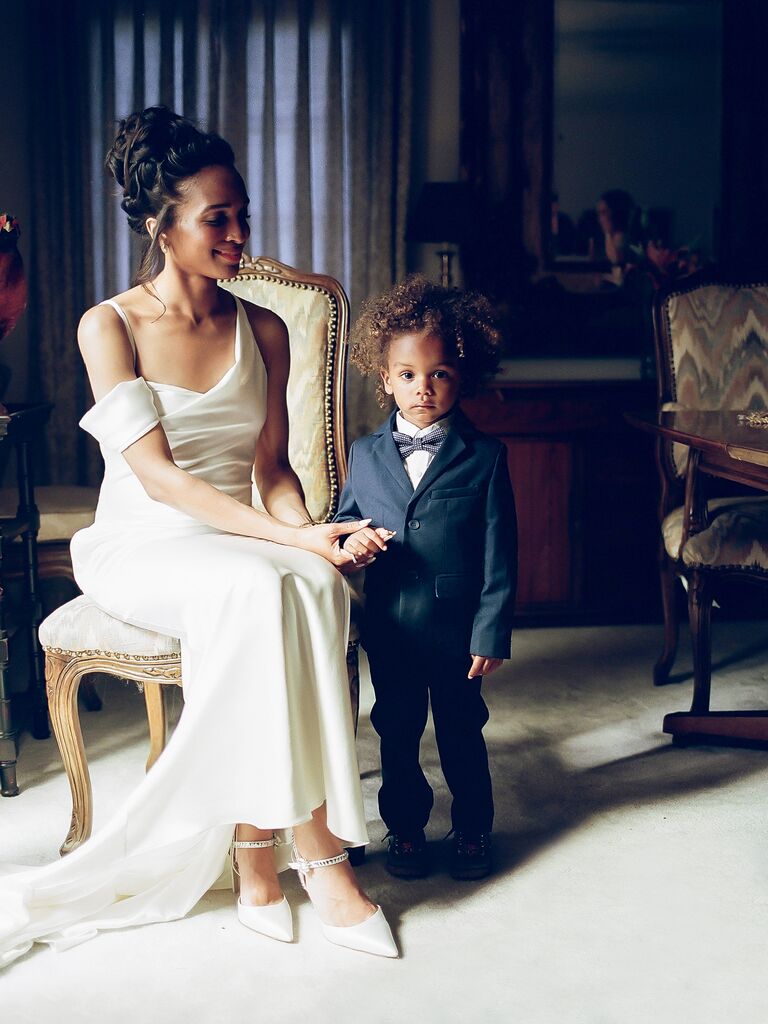
One of the most well-known wedding photographers today, Moesia Davis has taken the industry to new heights. Davis' journey began as a child asking for a camera for Christmas every year. Fast forward to feeling stuck in career limbo in college, Davis, who is based in New Orleans, Louisiana, thought back to her love for cameras and photography and pursued that wave of nostalgia. "I went to the store and bought my first DLSR, the Canon Rebel. Later that day, I went to my cousin's little league football game, snapped a few photos and printed them out for his dad. He called me the next day with scolding comments, specifically from the parents. Their primary critique: 'Why aren't there any photos of my kid?' That's when I knew I had a product that could be lucrative and fulfilling," says Davis.
Based on an adoration for weddings feeling like beautiful family reunions, Davis found her space in the wedding industry and made a name for herself. "I preserve the memories through photographs, but I'm not the person creating the memories—you are. My goal is to capture your love story in real time. My purpose is to deliver a product that transcends time," she says. One way that Davis transcends time is by focusing on one of the classic and old-school wedding photography styles for her work, also known as film photography. "I've always loved the richness of film photographs. Film is also expensive and time consuming, which forces you to be intentional with every click. You wait on the moment instead of forcing a moment to happen. That's what made me a better photographer," says Davis.
What's the piece of advice Davis needs African American wedding photographers to hear? To know their worth. "Years ago, I read something that said, 'When Black people are good at their jobs, they get more responsibility, not more money.' That quote haunts me because I think we naturally give more without expecting more. You have to know you're deserving of the work and the money," she says.
Learn more: Instagram, Website
Petronella Photography: Petronella Lugemwa
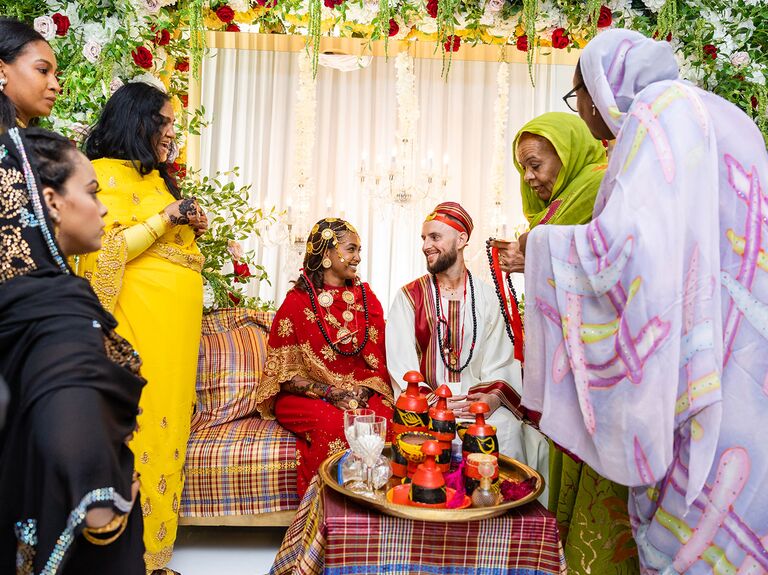
Petronella Lugemwa has always seen photography as a way to preserve precious memories and share unique perspectives. Lugemwa found her calling with wedding imagery in 2011 when a coworker asked her to take photos at their wedding. "Stepping into that role, I realized that weddings weren't just about documenting a day. Weddings are about telling a love story in a way that feels cinematic, emotional and timeless," Lugemwa says.
Being born in Uganda, growing up in Zimbabwe and immigrating to Birmingham, Alabama, taught Lugemwa cultural diversity should be celebrated. "What makes me and my team different is that we don't just capture weddings; we immerse ourselves in the cultures, traditions and personal stories that make each couple special. One of the ways we do that is by having an intentionally multicultural team that collectively speaks nine languages," she says. The photography group's style "embraces a documentary approach to preserve real emotions as they unfold, brings an editorial eye, ensuring that every couple looks and feels their best," Lugemwa, who's located in New York, explains.
And for those that look up to Lugemwa, she has a few things to say about the complexity that comes with being a Black wedding photographer. "There are always additional questions, lingering doubts (whether internal or shaped by the environment), the extra effort required and at times, an unspoken pressure to prove you belong. Just remember that when couples see a Black wedding photographer capturing love stories with artistry, excellence and authenticity, it shifts the narrative. It reminds them and the industry that love is universal, but the way it's seen and celebrated is deeply personal."
Learn more: Instagram, Website, The Knot Vendor Marketplace
Terrence Irving Photography: Terrence Irving

Representing Ledyard, Connecticut, Terrence Irving has been holding a camera since he was 10 years old, which was inspired by seeing his dad attend every function with a camera or camcorder in hand. Years later, in 2017, Irving started his photography business, and was only doing landscapes and the occasional portrait until a lead came for an engagement shoot. "I guess they were happy with the results because they asked me to photograph their wedding. Though I said 'yes' immediately, I wanted to throw up because I was so nervous. The first one was a rush though––a total vibe," says Irving.
Irving describes his approach to photography as "a strong balance between technical and artistic or 'artistically-engineered.'" He worries about the lighting, composition and balance, but also the storytelling, aesthetic choices and emotion. Those qualities in his work is what makes him different from other wedding photographers. His advice for Black wedding photographers who want to set themselves apart is to not be afraid of putting yourself out there. "Demonstrate your skills. Yes, sometimes they're going to look at you funny and talk about you as if you don't belong. But keep going, keep showing them what you can do," he says.
Learn more: Instagram, Website
Terri Baskin Photography: Terri Baskin

Calling Washington, DC, her home base, Terri Baskin has been in the photography game for over a decade. Baskin's passion for photography wasn't too much of a surprise since her father was a wedding photographer. Baskin eventually got her start after taking photos of a coworker, who showed the images to a friend in need of engagement pictures. "I fell in love with weddings after capturing my first wedding and continued from there," says Baskin.
Since then, Baskin has said her photography style is joyful and romantic, which is one of the many reasons her clients love her work. "I differentiate myself from other wedding photographers with my ability to blend storytelling and an elevated client experience. Additionally, I have a deep understanding of lighting, particularly for diverse skin tones, ensuring that every couple looks and feels their best. I listen to how my clients describe me and the consistent message that I hear is how I make them feel comfortable in front of the camera," says Baskin.
Baskin's confidence behind the camera comes from being herself and hard work, which is what she wants African American wedding photographers to do as well. "Stay true to your vision, invest in your craft and build a community that uplifts and supports you. Once you figure out what makes you come alive and excited to work, implement that into your photography and the clients who resonate with your style will find you," she says.
Learn more: Instagram, Website, The Knot Vendor Marketplace
Teshorn Jackson Studio: Teshorn Jackson
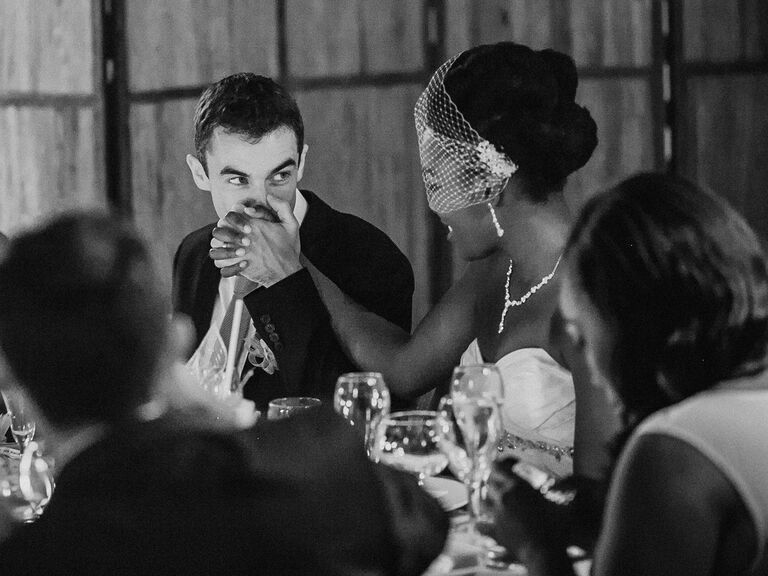
Teshorn Jackson loved taking pictures from a young age and always had a camera with him growing up. But Jackson didn't discover his destined path with photography until later in life. After buying a camera in college and doing photo work here and there, Jackson got his big break in weddings in 2011 after doing a huge photoshoot in Antigua, where he grew up. "The work was published in the UK. Sometime in the fall of 2012 I got an email from a couple in London saying, 'Hey, we found your work and we want you to shoot our destination wedding in Antigua next year,'" says Jackson, who's based in Dallas-Fort Worth, Texas.
Jackson tells me that his photography style is all about real moments and that his clients always say they feel like they are there when they look at his photos. And yes, many photographers lean into having a documentary viewpoint for their work, but Jackson says he catches couples' attention by not having a strict wedding photography shot list. "A lot of moments are missed when you're not looking at the full story. Yes, you might see the beautiful portraits and editorials on Instagram, but what about the special moments in between," he asks.
Jackson wants to make it a point to rising Black wedding photographers that networking and creating a solid foundation at home is key. "Early in my career, I was a 'I'm a one-man band' type of guy. But I realized you need people around you because there's only so much you can do on your own. You need other vendor partners and relationships because networking is essential to one's growth."
Learn more: Instagram, Website, The Knot Vendor Marketplace

